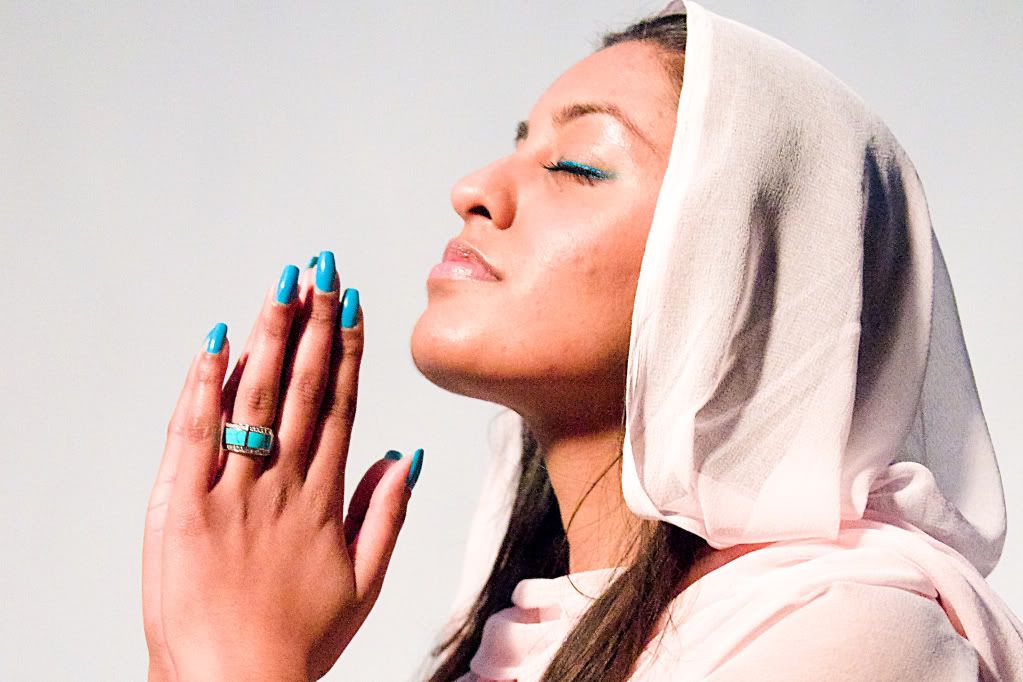When God made man, was she only joking?
As the debate over women bishops rages on, Bettany Hughes, author and historian, adds fuel to the fire and the oily issue of the rightful place of women in the church.
In her new series for the BBC, entitled Divine Women, Ms Hughes challenges the belief that women cannot be bishops and argues that they are deeply – and historically – linked to the divine.
Episode one, controversially entitled ‘When God was a girl’, doesn’t quite go as far as to insist that God is a woman, but does suggest we look closely at history to gauge the importance of women in religion through time.
“Who knows whether God was a girl?” she asks.
The programme traces the history of women in religion and examines their importance in the development of spiritual traditions, arguing that the important role of women has often been overlooked or obscured.
One piece of evidence Ms Hughes presents for this is quite extraordinary, especially considering the opposition faced by women wishing to be ordained as Bishops in the Church of England.
She says that Christianity was originally “a faith where the female of the species held sway”, adding that for more than 200 years after the religion’s genesis, over half of the churches in Rome were built by women.
In a piece for The Telegraph, she wrote “Headstones from the 2nd and 3rd centuries AD celebrate women who were ‘episcopa’ – not just the wives of bishops, as has often been claimed, but bishops themselves.”
She describes her visit to the catacombs of Priscilla, the underground tombs of Rome, and the beautifully painted walls of early Christian settings.
There is depiction after depiction of women in the act of worship, dressed in holy garb, even giving communion. In the last picture, the woman is wearing an alb, one of the oldest liturgical vestments and the marker of an ordained priest.
As Ms Hughes says, “Unlike the modern world of faith, women here are conspicuous not by their absence but their presence.
“Fierce, powerful females were at the very roots of early faiths – and made Christianity what it is today”, she asserts.
This seems to be a view echoed by other notable historians such as Geoffrey Blainey.
In his book ‘A Short History of Christianity’, he wrote that women were more influential during the time of Christ than they were in the next thousand years of Christianity, and were probably the majority of Christians in the first century AD.
He points to the Bible itself, to Galatians 3:28, from the apostle Paul : “There is neither Jew nor Greek, there is neither slave nor free, there is neither male nor female, for you are all one in Jesus Christ”.
Yet by the 4th century, says Ms Hughes, women were no longer leading figures in the Christian movement.
Rather, they had been ousted as the ‘footsoldiers’ of Jesus and relegated to the role of ‘handmaids’ of God.
A patriarchal society had emerged fully formed.
Since then, she argues, evidence of the power and influence of women in early religion – not just Christianity – has been deliberately censored.
“The legion protests of churchmen through history speaks volumes. Tertullian writes in the 2nd century AD of the ‘mad insolence of women who have dared to wish to teach’, the Council of Nimes in 394 outlawed the ‘priestly service of women’, Pope Gelasius rails that ‘everything that is exclusively entrusted to the service of men has been carried out by the sex that has no right to do it’.”
She goes on to say that “as late as 829 AD the Reform Synod of Paris trumpeted “women press around the altar… indeed even dispense the body and blood of the Lord to the people. This is shameful and must not take place.”’
Hundreds of years later, that voice doesn’t sound terribly unfamiliar.
There is still conflict within the church – whatever church that may be – as to the future role of women.
It’s ironic, given that at least 65% of all those who go to Anglican Churches are women.
Hughes concludes by saying: “When our earliest ancestors tried to work out what it was to be human – in this life and the next – they turned to the female of the species for guidance.
“Once monotheism finally arrived, it was built upon these foundations.
“This year, when some women will once again take a pole position in the Church, following the Synod’s anticipated vote on female bishops, this will not be a radical departure; but a return to the very roots of religion itself.”
For those not necessarily of a religious bent, you can take part in a poll run by The Huffington Post to accompany their piece on Bettany Hughes.
This asks readers to vote on whether God was a) a man, b) a woman or c) a manufactured concept beset by logical problems created to assuage the fear of death.
















